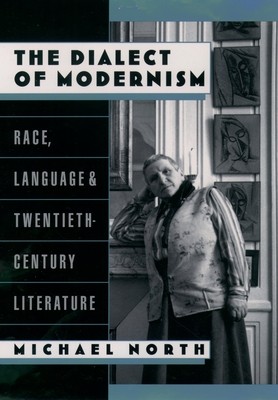
- We will send in 10–14 business days.
- Author: Michael North
- Publisher: Oxford University Press, USA
- ISBN-10: 0195122917
- ISBN-13: 9780195122916
- Format: 23.3 x 15.6 x 2.1 cm, softcover
- Language: English
- SAVE -10% with code: EXTRA
Reviews
Description
The Dialect of Modernism uncovers the crucial role of racial masquerade and linguistic imitation in the emergence of literary modernism. Rebelling against the standard language, and literature written in it, modernists, such as Joseph Conrad, Gertrude Stein, T.S. Eliot, Ezra Pound, and William Carlos Williams reimagined themselves as racial aliens and mimicked the strategies of dialect speakers in their work. In doing so, they made possible the most radical representational strategies of modern literature, which emerged from their attack on the privilege of standard language. At the same time, however, another movement, identified with Harlem, was struggling to free itself from the very dialect the modernists appropriated, at least as it had been rendered by two generations of white dialect writers. For writers such as Claude McKay, Jean Toomer, and Zora Neale Hurston, this dialect became a barrier as rigid as the standard language itself. Thus, the two modern movements, which arrived simultaneously in 1922, were linked and divided by their different stakes in the same language. In The Dialect of Modernism, Michael North shows, through biographical and historical investigation, and through careful readings of major literary works, that however different they were, the two movements are inextricably connected, and thus, cannot be considered in isolation. Each was marked, for good and bad, by the other.EXTRA 10 % discount with code: EXTRA
The promotion ends in 20d.09:37:16
The discount code is valid when purchasing from 10 €. Discounts do not stack.
- Author: Michael North
- Publisher: Oxford University Press, USA
- ISBN-10: 0195122917
- ISBN-13: 9780195122916
- Format: 23.3 x 15.6 x 2.1 cm, softcover
- Language: English English


Reviews